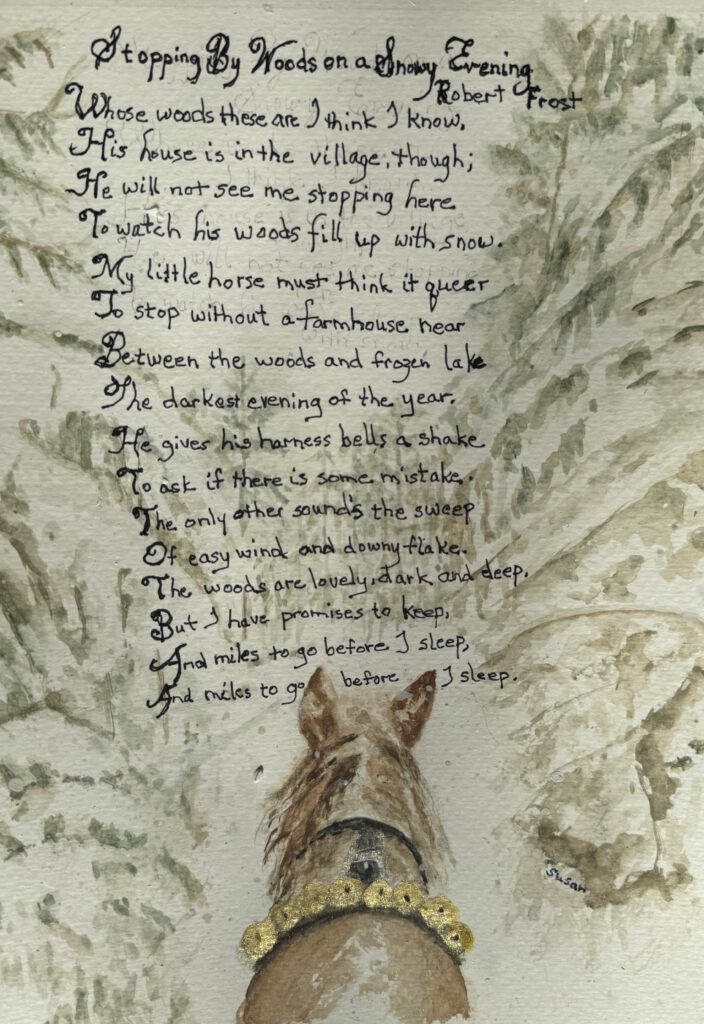Modern and Postmodern Discourses in Shakespeare's The Winter's Tale: A Response to David Laird
Maurice Hunt
Published in Connotations Vol. 5.1 (1995/96)
In his article, David Laird gracefully and cogently defines several contending idioms in the play, primarily Leontes' absolutist language, intent on forcing connotations into a single, self-serving meaning; Hermione's "discursive skepticism that measures the distance between words and things" (27); Paulina's therapeutic speech associated with the healing arts; Autolycus' multi-tongued utterances, corrosive of totalitarian statements; and Perdita's foster brother's liberating mutualistic language. Laird suggests that the latter four of these five discourses amount to linguistic antidotes for Leontes' cruelly authoritarian speech and the havoc wrought by it. These discourses also figure in Laird's larger scheme, one that involves postmodern and modern language practices. Because the above-described languages are relatively intelligible and determinate in meaning, they represent for Professor Laird alternatives to recent postmodern characterizations of the language of The Winter's Tale, especially the analysis of Stephen Orgel. According to Laird, a postmodernist analysis yields occasional radical meaninglessness in the discourses of the play, as well as a resistance to thematic patterning, an always unfinished signification, and "a certain incredulity or skepticism about totalizing or overreaching interpretive schemes or meta-narratives" (26). Laird implies that at least one of the discourses that he offers as alternatives to Professor Orgel's characterization of the opaque language of the play can be called modern. Laird asserts that the languages upon which he concentrates his attention bear "the marks of gender, class, and what Foucault refers to as the emergent power of [→page 84] the modern state" (26-27). Leontes' authoritarian freezing of meaning to the sociopolitical disadvantage of dissenting tongues illustrates a Foucaultian modern language practice: "to control language, to exercise the power to name, categorize, and classify is an essential weapon in the arsenal of monarchy and the modern state no less than it was, for instance, of republican or imperial Rome" (27).1)
Laird recognizes in this judgment that Leontes' language could just as easily be called transhistorically monarchical as modern,17) but I will grant him the claim that Leontes' speech is modern in a sociopolitical sense. Critics such as Stuart Kurland, William Morse, and Laird himself have persuasively argued that Leontes' dogmatic pronouncements and linguistic aggrandizement parody the linguistic absolutism of the early modern King James.[fn]tuart Kurland, "'We need no more of your advice': Political Realism in The Winter's Tale," SEL 31 (1991): 365-86; William Morse, "Metacriticism and Materiality: The Case of Shakespeare's The Winter's Tale," ELH 58 (1991): 283-304. [/fn] In the following essay, I want to extend Laird's analysis of modern discourses in The Winter's Tale, posing some critical questions suggested by certain assumptions in his argument. I hope to show that discourse in the play which Laird portrays as a benign alternative to Leontes' petrifying speech, language such as Hermione's playfully ambiguous, polysemous utterance, is every bit as modern as Leontes' despotic habit of pronouncement. This case suggests that other similarities may inhere within the differences that Laird draws. In fact, I want to suggest finally that the modern and postmodern idioms defined by Laird are, in a certain sense, problematically alike, so much so that other paradigms for defining modern and postmodern speech acts in the play recommend themselves. Rather than define these here, I shall describe them at the moment of their introduction, when a portrayal is likely to be more meaningful for the reader.
Distinguishing between certain modern and early modern languages in The Winter's Tale focuses major critical questions underlying Laird's analysis. When persons call Shakespeare's age early modern, they may refer to a variety of social, political, or artistic phenomena. Properly speaking, one locates comparable modern phenomena in the period circa 1850 to the mid-1970s (when postmodernism emerged). Thus in the case of Shakespeare's language, modernism (broadly defined) may or may not be a historical descriptor, but postmodernism always must be a metaphorical (or analogical) one. In the case of Leontes' solipsistic, authoritarian language, it is possible to say that it is both an early [→page 85] modern and a modern event. By many accounts, King James on occasion relied on such an absolutist idiom, as did several nineteenth- and twentieth-century rulers. But auditors hear other discourses in The Winter's Tale that are early modern but not modern in the sense that politically absolute speech pervades both epochs. The bitter, medicinal speech of Paulina that Laird cites derives--as he nicely shows--from sixteenth- and seventeenth-century medical treatises on the treatment of madness. And there are other early modern (but not modern) discourses in the play not mentioned by Laird. For example, Polixenes' and Hermione's easy, gracious banter, filled with innuendoes, reflects a Castiglionean sprezzatura of language. As such, it amounts to an early modern signifier of aristocratic privilege, not only among noblemen and women but also with regard to the different fluidity of utterance among artisan and peasant classes, heard most clearly in The Winter's Tale during the great pastoral scene. Leontes' misinterpretation and denial of this Castiglionean conversazione says something about the negative relationship of the discourse of political absolutism to the mutual, deferential language of aristocrats empowered by the degree of non-authoritarianism in their speech. Temperamentally absolutist King James still depended upon courtiers and noblemen often communicating by a complex code of non-absolutist signifiers.
Then again, Apollo's oracular pronouncement silences Leontes, collapsing his world of words, and beginning his healing process. But it does so only because, as the statement of the play's god, it is more dictatorial than any one of Leontes' totalitarian utterances. Many commentators on The Winter's Tale have remarked that as a god of logos, Shakespeare's Apollo resembles the Judeo-Christian God who, as the Gospel of John reminds us, works through the word. What are the implications for Christian discourse of representing a god of the word adopting the very practice of a deluded mortal in order to silence him? Does the so-called absolutist political discourse of modernity describe the linguistic methodology of godhead? Or is this conflation an early modern rather than a modern trait? And if it is, what does the conjunction say about the relationship of royal political language to the discourse of Christianity as represented in institutions like the Reformed Church of England?
[→page 86] Finally, the precious, often artificial language of the courtiers in V.ii., who report the discovery of Perdita's identity and her reunion with Leontes, has been called Arcadian and Euphuistic.2) Its Mannerist conceits associate it not with Castiglione but with the distinctive styles of Thomas Lodge and Sir Philip Sidney (and admittedly not at his best). In short, the discourse is early modern rather than modern. Critics of the play generally do not admire this early modern discourse, and the question arises of Shakespeare's reason for casting his prose in such mannered conceits as Third Gentleman's "One of the prettiest touches of all, and that which angled for mine eyes (caught the water though not the fish), was when, at the relation of the Queen's death . . . " (V.ii.82-85).3) Several critics have claimed that Shakespeare purposely made this language uncompelling in order to underscore the power of visual knowledge, of the truth that to have missed Perdita's and Leontes' singular reunion is to "have . . . lost a sight which was to be seen, cannot be spoken of" (V.ii.42-43).4)
But if the gentlemen's talk is serious speech (as it appears to be), where should we place it within Laird's implied grid of modern and postmodern languages in the play? With which discourse does it compete? Clearly, it does not seem to be an empowered or empowering language. Other discourses in the play invite similar descriptions and comparable questions. Answering them involves a more comprehensive understanding than we currently possess of how early modern discourses interacted with one another with regard to the acquisition and maintenance of sociopolitical power. All one needs to say in conclusion is that the language of the play's women surpasses the discourse of the conceited fifth-act gentlemen.
The presence of puns and other kinds of wordplay in the language of the major characters of The Winter's Tale complicates the distinction that Professor Laird makes between Leontes' malign and Hermione's benign use of language. The threat to Leontes' despotic insistence on his own self-serving, single-dimensional interpretation of events and dialogue, in Laird's words, "arises initially in Hermione's voicing of a discourse where meanings are multiple, ambiguous, and shadowed by an implicit recognition of what W. K. Wimsatt terms 'the polysemous nature of verbal discourse'" (27). I want to defer for the moment answering the question of whether Hermione's open and open-ended [→page 87] discourse is in some sense modern in order to note that it employs and responds to puns. They are part of what Laird calls Hermione's "illocutionary legerdemain" (29). For example, Hermione jokingly concludes her first speech in the play, advice on how Leontes might convince Polixenes to prolong his visit, by saying that, if her husband followed her counsel, Polixenes would be "beat from his best ward" (his best defensive position / his best counterargument; I.ii.33). Like Hermione (even more so), Leontes coins and responds to puns; in fact, puns are his chief vehicle for creating absolutist meanings. Rather than being "unwilling to tolerate verbal or perceptual ambiguities" (Laird 31), Leontes actually appears to listen for them, revolve them in his mind, and play upon them for several minutes. W. H. Matchett in a seminal article suggested this tendency twenty-five years ago.5) Focusing upon words and phrases in Polixenes' opening speech, terms like "burthen" and "we should, for perpetuity, / Go hence in debt," Matchett masterfully established that Polixenes unintentionally speaks the language of adulterous pregnancy, an ambiguity to which Leontes' suspicious ear is liable. It was M. M. Mahood who memorably demonstrated that the significance we find in The Winter's Tale depends in large part upon the resonances generated by its puns, especially those associated with Leontes.6) For example, his imagination of bestiality deepens with the pun he detects in the word "neat" (I.ii.122-25); his sense that he enacts the part of a cuckold strengthens with a quibble he makes on "play" (I.ii.187-89); his belief that poisoning Polixenes will cure him of his suffering concludes in a pun on "cordial" (I.ii.316-18), and so on.
Leontes, Hermione, and Polixenes fix their speech meanings by being open to the registers of words; Leontes' friend and queen simply do not insist upon the momentarily fixed meanings of certain evocative words as stubbornly or usually for as long as he does. But that does not mean that they are not, in certain respects, linguistic absolutists. Hermione, for instance, throughout The Winter's Tale steadfastly assumes that oaths (despite evidence to the contrary) inherently outvalue sayings of any kind. And she agrees with Leontes that a person can inalterably speak fully to purpose only twice in a lifetime--in her case, so as to earn a royal husband and a friend (I.ii.90-108). When Leontes denies her magnificent verbal protestation of innocence by saying "I ne'er heard [→page 88] yet / That any of these bolder vices wanted / Less impudence to gainsay what they did / Than to perform it first" (III.ii.54-57), she exclaims, "That's true enough, / Though 'tis a saying, sir, not due to me" (III.ii.57-58). Her reply implicitly argues that certain speech acts of a person (such as her present declaration) remain forever fixed in meaning and attributable to the speaker.
All this is to say that the language use of Leontes and Hermione is more similar than Professor Laird suggests. In this respect, they are linguistic modernists in a sense that recent reassessments of New Criticism illuminate. Hugh Grady has shown the several ways in which New Critics and the criticism they produced were modernist.7) This modernist language practice generally isolated a linguistic artifact as a collection of utterances or statements, searched for connotations and wordplay that could be assembled into thematic and structural patterns, and then reproduced them by articulating a progressive meaning generated by the nuances of words. Foremost among New Critics was W. K. Wimsatt, a writer Laird invokes to portray the multiple meanings and ambiguous, "polysemous" nature of Hermione's discourse. Even though Laird does not say so, this invocation suggests that Hermione speaks a modern discourse. To the degree that Hermione, like Leontes, teases meaning out of the rich ambiguity of language, to the degree that she uses, capitalizes, and builds upon wordplay, she (like her husband) is a modern discourser in senses most fully defined by literary practicioners of the mid-twentieth century. Laird could have argued that Shakespeare in Hermione's language pits one kind of modern discourse against another one, represented by Leontes' verbal authoritarianism.
Speaking in the broadest terms, one can argue that wordplay, especially the pun, appears more frequently in English Renaissance drama and Metaphysical poetry than it does in any comparable body of writing produced in the Middle Ages. I would argue that this higher frequency amounts to an early modern trait of language. Like any Shakespeare play, The Winter's Tale manifests this trait, which in the context of my response to Professor Laird's essay leads us first to an awareness of how the play as a whole is a modern linguistic artifact and then to the realization that modern and postmodern language analyses of it are, in a crucial sense, more alike than different. Not only Leontes and [→page 89] Hermione but almost all the other characters of The Winter's Tale coin puns or engage in wordplay. When First Lord remarks that Leontes' resolve to burn the infant Perdita will "Lead on to some foul issue" (II.iii.153), his word "issue" collocates with other uses of the term which relate to child delivery and Apollo's oracle; it suggests that the king's "issue"--his daughter--will cancel the foul issue of Apollo's incriminatory oracle. Similarly, when Antigonus says, "Thou art perfect then, our ship hath touch'd upon / The deserts of Bohemia?" (III.iii.1-2), his word "perfect" forecasts the relative perfection of values appearing in the mythology of the sheepshearing festival. This pattern-producing wordplay of The Winter's Tale has been exhaustively chronicled by Richard Proudfoot.8) Because the resultant redemptive order is the product of the connotations of all the characters' speech acts, one concludes that the pattern is Shakespeare's or Apollo's (or that of both--god's and artist's). In this case, there are no competing discourses among characters. The wordplay of all the major personages cooperates in a modern, New-Critical fashion to reveal a hidden providential design in dramatic events.9)
Leontes' honed awareness of the possible meanings of wordplay calls into question the claim that Apollo's oracular riddle is "beyond his capacity to decipher" (Laird 35). Rather, one might say that a flawed linguistic absolutist who operates through wordplay simply chooses not to credit a competitor, here a divine linguistic absolutist whose providence materializes through the signification of wordplay. Having formulated the likeness this way, we realize that it catches Shakespeare's reflection in its glass. Although he rewards Leontes in the end, Apollo angrily makes Leontes immediately pay for usurping his prerogative of absolutist speech. Mamillius dies. Postmodern critics of Shakespeare's plays such as Stephen Orgel may powerfully claim that Shakespeare's texts are always unfinished, blurred and blurring playscripts filled with fissures, blank spaces, and present absences; but the words that the playwright once did fix upon paper became essentially absolute in the form of the First Folio, a freezing of meaning less pretentious than Ben Jonson's precedent-setting Works (Opera) but august nevertheless. In what sense does the "absolute" language of the playwright Shakespeare differ from that of his mad alter ego Leontes?
[→page 90]Critics have traditionally found certain answers or rectifications in pastoral Bohemia for problems set in Leontes' Sicilian court. In this vein, Professor Laird notes that the multivalent language of Autolycus and the mutualistic, leveling idiom of Perdita's foster brother appear preferable to Leontes' tyrannous coinages. But many of the most beautiful, purportedly redemptive speeches of the great pastoral scene are every bit as absolutist as Leontes' less lyrical pronouncements. This is especially true of Florizel's exquisite love lyric, spoken in response to the ravishing image of Perdita distributing flowers, "What you do / Still betters what is done" (IV.iv.135-46). This lyric may be about the communicative superiority of song, prayer, and dance to conversational speech, but it is only by expressing this likely truth in artistically organized speech that Florizel makes the assertion believable. Appropriately lyrical poetry absolutely fixes the idea that dancing Perdita, like a seemingly ceaseless wave of the sea, might "move still, still so" (IV.iv.142), might, in other words, approximate eternity. Perdita may modestly protest that the praises of Florizel's lyric "are too large" (IV.iv.147), and she may need the corroboration of his "speaking" youth and blood to credit his pronouncements (IV.iv.147-51); but those facts do not qualify the permanent, redemptive status of Florizel's speech regarded as a twelve-verse poem. Florizel's language is as autocratically insistent about the authority of romantic love as Leontes' political language is about the authority of rule.
Literary critics especially responsive to language through interpretation necessarily fix its meaning usually as absolutely as Leontes, Florizel, and even Hermione do. This is generally true whether they show a modernist or postmodernist stripe. In the case of the New Critics, this modernity involved the categorical reading of a chosen text. Paradoxically men and women finely attuned to the nuances of words often defended their verbal interpretations of an event against other absolute readings of it generated by the same resonant words. In this respect, they bear an uncomfortable likeness to Leontes. In their potential effects, both literary artifacts and critical readings of them strangely resemble the impact of Hermione's statue on its beholders. Even as the wonder of the statue's artistry steals the life from admiring Leontes and Perdita, freezing them paradoxically into stone, so the irresistible artistic power [→page 91] of Shakespeare's plays and the multitude of always necessarily fixed interpretations that they provoke transfix commentators in plottable, usually unyielding positions. Only when one has seen a critical interpretation fixed in the form of a published article or book does one painfully see what is wrong with one's argument.
All I am claiming is that the linguistic process by which any critic of Shakespeare's plays establishes a reading of some aspect of one of them resembles the process by which Leontes shows that he is a modern absolutist with words. And since one can find ancient Greeks and Romans, to say nothing of medieval commentators, operating with language in the same way, giving the term "modern" to this habit may beg several questions. My point includes postmodernists too. The argument that language is circularly referential, always open-ended, forever mutual and negotiable, opaque with regard to knowing any reality other than a self-fashioned one is usually an absolute assertion. Even the most hospitable, non-threatening, multiply qualified statement is categorical about "acategoricality."
Other ways of defining modern and postmodern elements of The Winter's Tale exist. The implosion of binary opposites, especially the traditional antitheses of modernist thought, characterizes a recurrent postmodern action.10) Postmodern "hyperreality . .. brings with it the collapse of all real antagonisms or dichotomies of value," Steven Connor writes: "Baudrillard claims that, with the whole of the political spectrum being dominated by the logic of the simulacrum [the sign detached from reality], even the most [modern] inveterate antagonisms, like that of capitalism and socialism, are annulled by the dependence of one upon the other; authority depends upon subversion, just as subversion draws its energies from authority .... In this situation, opposites collapse into each other; as Baudrillard says, they 'implode,' producing a 'floating causality where positivity and negativity engender and overlap with one another.'"11) The postmodern implosion condenses binary opposites in a core of counteraction that freezes itself. Out of the ashes of modernism, this postmodern phoenix has arisen, with Jacques Derrida insisting throughout his writings upon the presence of absence and the absence of presence, John O'Neill defining "a certain will to willessness--a failure of nerve that gives it its nerve,"12) and other postmodern[→page 92]is describing a femaleness of maleness and a maleness of femaleness as well as a slavery of mastership and a mastery of enslavement--in short, the always already presence of the other in each term of a no longer existing but actually imploded binarism.
I have argued elsewhere that the above-described postmodernist paradigm provides the most approximate metaphor for grasping the cultural relevance of the collapse of opposites into new fusions apparent in Jacobean plays of Shakespeare such as Antony and Cleopatra and The Winter's Tale.13) In the case of the latter play, this fusion, different in kind from the Renaissance paradox defined by Patrick Cruttwell,14) appears in Florizel's haunting phrase "move still, still so" in his fourth-act paean of love. I have argued that it represents a version of a more pervasive Jacobean-Shakespeare-"postmodern" paradigm of undoing done, of a verbal construct that depicts chaos instantaneously working its own order or containment.15) (In modernist thought, the artist/critic orders chaos). Within itself, this postmodern construct incorporates a modern stasis and an anarchic motion characteristic of postmodernity.16) Besides portions of Florizel's love lyric, Paulina's summary portrayal of Leontes' guiltiness (III.ii.207-14) and the dialogue accompanying the transformation of Hermione's statue into the living woman amount to discourses of modernity/postmodernity in The Winter's Tale different from those described by David Laird. As a supplement to his thought-provoking notions of modern and postmodern languages in this play, these and other modern/postmodern discourses can reveal Shakespeare's participation in late twentieth-century methods of posing and solving cultural problems of thought and expression.
Waco, Texas
































 Ring out, wild bells, to the wild sky,
Ring out, wild bells, to the wild sky,











